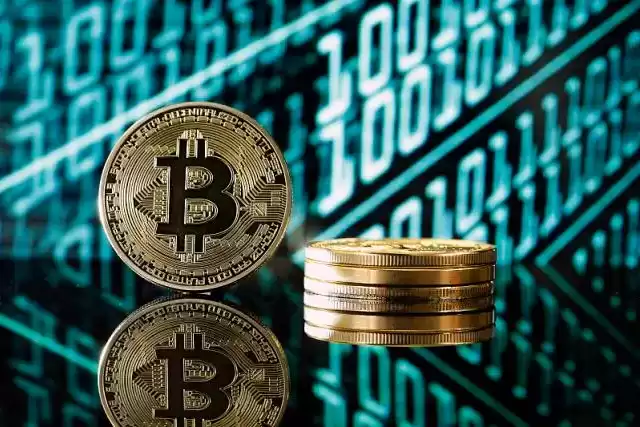-
 bitcoin
bitcoin $87959.907984 USD
1.34% -
 ethereum
ethereum $2920.497338 USD
3.04% -
 tether
tether $0.999775 USD
0.00% -
 xrp
xrp $2.237324 USD
8.12% -
 bnb
bnb $860.243768 USD
0.90% -
 solana
solana $138.089498 USD
5.43% -
 usd-coin
usd-coin $0.999807 USD
0.01% -
 tron
tron $0.272801 USD
-1.53% -
 dogecoin
dogecoin $0.150904 USD
2.96% -
 cardano
cardano $0.421635 USD
1.97% -
 hyperliquid
hyperliquid $32.152445 USD
2.23% -
 bitcoin-cash
bitcoin-cash $533.301069 USD
-1.94% -
 chainlink
chainlink $12.953417 USD
2.68% -
 unus-sed-leo
unus-sed-leo $9.535951 USD
0.73% -
 zcash
zcash $521.483386 USD
-2.87%
How many Bitcoin contracts are reasonable to open
Determining the ideal number of Bitcoin contracts to trade necessitates careful consideration of risk tolerance, trading approach, and overall financial situation, ensuring responsible and informed decision-making.
Nov 11, 2024 at 12:30 am

The number of Bitcoin contracts that are reasonable to open depends on a number of factors, including your risk tolerance, trading strategy, and account size. It's important to carefully consider all of these factors before deciding how many contracts to trade.
1. Risk ToleranceYour risk tolerance is the amount of money you're willing to lose on a trade. This is a personal decision, and it's important to be honest with yourself about your risk tolerance before you start trading. If you're not comfortable with losing a lot of money, you should trade with a smaller number of contracts.
2. Trading StrategyYour trading strategy will also affect how many contracts you should trade. If you're using a scalping strategy, you'll likely want to trade with a larger number of contracts than if you're using a swing trading strategy. This is because scalping involves making small profits on a large number of trades, while swing trading involves making larger profits on a smaller number of trades.
3. Account SizeYour account size is also a factor to consider when deciding how many contracts to trade. If you have a small account, you'll need to trade with a smaller number of contracts than if you have a larger account. This is because you don't want to risk losing more money than you can afford.
4. Market ConditionsThe market conditions can also affect how many contracts you should trade. If the market is volatile, you'll likely want to trade with a smaller number of contracts than if the market is stable. This is because volatile markets can make it more difficult to make profitable trades.
5. Emotional ManagementIt's also important to consider your emotional management when deciding how many contracts to trade. If you're not good at managing your emotions, you'll likely want to trade with a smaller number of contracts than if you're good at managing your emotions. This is because it's easier to make bad decisions when you're emotional.
6. ExperienceYour experience level will also affect how many contracts you should trade. If you're a new trader, you'll likely want to trade with a smaller number of contracts than if you're an experienced trader. This is because it takes time to learn how to trade effectively.
7. EducationYour education level will also affect how many contracts you should trade. If you're not well-educated about trading, you'll likely want to trade with a smaller number of contracts than if you're well-educated about trading. This is because you need to understand the risks involved in trading before you start trading.
8. Trading PsychologyYour trading psychology will also affect how many contracts you should trade. If you have a positive trading psychology, you'll likely be more successful than if you have a negative trading psychology. This is because a positive trading psychology will help you to make better decisions and to manage your emotions more effectively.
Disclaimer:info@kdj.com
The information provided is not trading advice. kdj.com does not assume any responsibility for any investments made based on the information provided in this article. Cryptocurrencies are highly volatile and it is highly recommended that you invest with caution after thorough research!
If you believe that the content used on this website infringes your copyright, please contact us immediately (info@kdj.com) and we will delete it promptly.
- UAE Investor Secures Major Stake in Trump-Linked Crypto Firm Amidst Shifting Geopolitical Tides
- 2026-02-02 07:10:01
- Pepe Meme Coin: Navigating the Hype, Price Predictions, and Future Outlook in 2026 and Beyond
- 2026-02-02 07:05:01
- Blockchain Gaming's Quiet Revolution: Unpacking Latest Trends and Industry Insights Amidst Market Shifts
- 2026-02-02 06:30:01
- IPO Genie, Tokenization, and YouTubers: The Big Apple's Next Big Bet on Democratized Wealth
- 2026-02-02 06:40:02
- Aptos in a Bind: Downtrend Deepens, But a Brief Relief Bounce Looms Before the Next Plunge
- 2026-02-02 07:00:01
- Pi Network, ATL, and Community: Navigating the Currents of a Mobile-First Crypto Movement
- 2026-02-02 07:00:01
Related knowledge

How to close a crypto contract position manually or automatically?
Feb 01,2026 at 11:19pm
Manual Position Closure Process1. Log into the trading platform where the contract is active and navigate to the 'Positions' or 'Open Orders' tab. 2. ...

How to understand the impact of Bitcoin ETFs on crypto contracts?
Feb 01,2026 at 04:19pm
Bitcoin ETFs and Market Liquidity1. Bitcoin ETFs introduce institutional capital directly into the spot market, increasing order book depth and reduci...

How to trade DeFi contracts during the current liquidity surge?
Feb 01,2026 at 07:00am
Understanding Liquidity Dynamics in DeFi Protocols1. Liquidity surges in DeFi are often triggered by coordinated capital inflows from yield farming in...

How to use social trading to copy crypto contract experts?
Feb 02,2026 at 07:40am
Understanding Social Trading Platforms1. Social trading platforms integrate real-time market data with user interaction features, enabling traders to ...

How to trade micro-cap crypto contracts with high growth potential?
Feb 01,2026 at 02:20pm
Understanding Micro-Cap Crypto Contracts1. Micro-cap crypto contracts refer to derivative instruments tied to tokens with market capitalizations under...

How to optimize your workspace for professional crypto contract trading?
Feb 01,2026 at 08:20pm
Hardware Infrastructure Requirements1. High-frequency crypto contract trading demands ultra-low latency execution. A dedicated workstation with a mini...

How to close a crypto contract position manually or automatically?
Feb 01,2026 at 11:19pm
Manual Position Closure Process1. Log into the trading platform where the contract is active and navigate to the 'Positions' or 'Open Orders' tab. 2. ...

How to understand the impact of Bitcoin ETFs on crypto contracts?
Feb 01,2026 at 04:19pm
Bitcoin ETFs and Market Liquidity1. Bitcoin ETFs introduce institutional capital directly into the spot market, increasing order book depth and reduci...

How to trade DeFi contracts during the current liquidity surge?
Feb 01,2026 at 07:00am
Understanding Liquidity Dynamics in DeFi Protocols1. Liquidity surges in DeFi are often triggered by coordinated capital inflows from yield farming in...

How to use social trading to copy crypto contract experts?
Feb 02,2026 at 07:40am
Understanding Social Trading Platforms1. Social trading platforms integrate real-time market data with user interaction features, enabling traders to ...

How to trade micro-cap crypto contracts with high growth potential?
Feb 01,2026 at 02:20pm
Understanding Micro-Cap Crypto Contracts1. Micro-cap crypto contracts refer to derivative instruments tied to tokens with market capitalizations under...

How to optimize your workspace for professional crypto contract trading?
Feb 01,2026 at 08:20pm
Hardware Infrastructure Requirements1. High-frequency crypto contract trading demands ultra-low latency execution. A dedicated workstation with a mini...
See all articles










































































